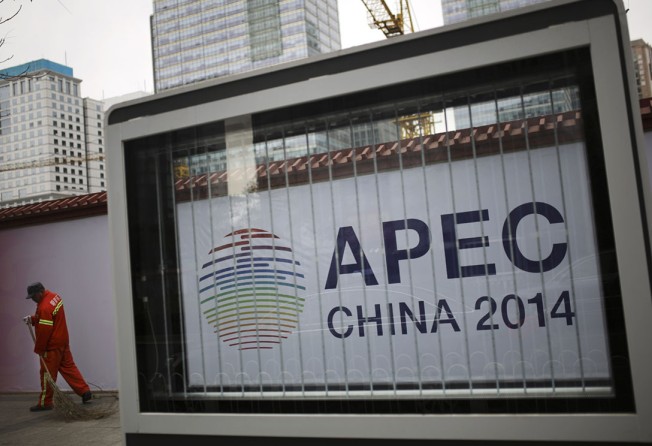Nation counting the cost of Beijing's expensive Apec makeover
Once again, the government resorts to short-term solutions to sell an image that is far removed from day-to-day reality

Beijing has often made headlines because of its pollution or traffic congestion. The government's scrambling effort to prevent such an embarrassing scenario occurring when leaders of 21 economies gathered for the summit of the Asia-Pacific Economic Cooperation forum was the talk of the town last week.
For Chinese leaders, the meeting was the most important showcase for showcasing its the nation and its rising diplomatic prowess since Beijing hosted the 2008 Summer Olympic Games.
Desperate that blue skies and traffic-free streets would greet world leaders, the government again did "everything humanly possible", as International Olympic Committee president Jacques Rogge described Beijing's effort six years ago, to clean up the city's notorious smog and alleviate traffic jams ahead of the summit. Its tough measures included factory shutdowns, traffic bans in the city and six neighbouring provinces, six-day forced vacations for civil servants and employees at state-owned enterprises.
Beijing also temporarily lifted the ban on social networking sites such as Facebook and Twitter besides allowing access to Google and Gmail just for foreign journalists covering the summit.
Although air pollution is obviously a long-time problem, the government seems to be capable only of short-term solutions in an effort to sell an image that is not the day-to-day reality. Indeed, Beijing witnessed rarely seen blue skies, dubbed "Apec blue", last week.
Even state-run media questioned what would happen to the air and traffic when the summit ended and the world leaders left.
While hailing the clean air in Beijing as evidence of the effectiveness of government action, the People's Daily admitted that "Apec blue" skies would go after the summit and warned that fighting smog was a "marathon" battle that could not be won after one short race.
Calling for "sustainable programmes" to ensure clean air in the long term, China Daily warned the government "should not get used to the quick-fix model of using special measures to improve the air quality just for special occasions".
"Apec is only here for a few days, yet for this meeting, we have mobilised the masses and paid a high price for the blue sky. When the event comes to a close, can we still keep the sky clean?" asked the state-run news agency, Xinhua.
Such overwhelming worry was reminiscent of the aftermath of the 2008 Olympics. Sunny days and clean air didn't last for long after the Games ended despite the US$20 billion investment on them. The government had to admit that the city's air quality had gone from bad to worse after a US study suggested that 60 per cent of Beijing's air quality improvement had evaporated within a year of the Games. Similar experiences occurred after this year's Nanjing Youth Olympic Games and the Asian Games in Guangzhou and Shanghai Expo in 2010
Beijing's efforts to entertain world leaders apparently go well beyond the Chinese tradition of hospitality and are not cost-effective. Credit Suisse estimated that the week-long "Apec measures" alone have led to an estimated one-quarter drop in China's steel production, 13 per cent decline in cement and 3 per cent loss of its total industrial output, which could shave 0.2 to 0.4 percentage points off China's November industrial production figure.
Credit Suisse predicted that the headline industrial production growth would be brought down to the low range of 7 per cent in November annually from the 8 per cent in September. The investment bank warned that Apec restrictions could fan short-term market uncertainty amid jitters over China's slowdown.
Apparently, Chinese leaders view projecting their carefully choreographed image as more important than anything else.
But such efforts backfired, as their actions exposed their weakness and lack of self-confidence, not strength, in governance. All along they sacrificed the public's interest and health just to save face.